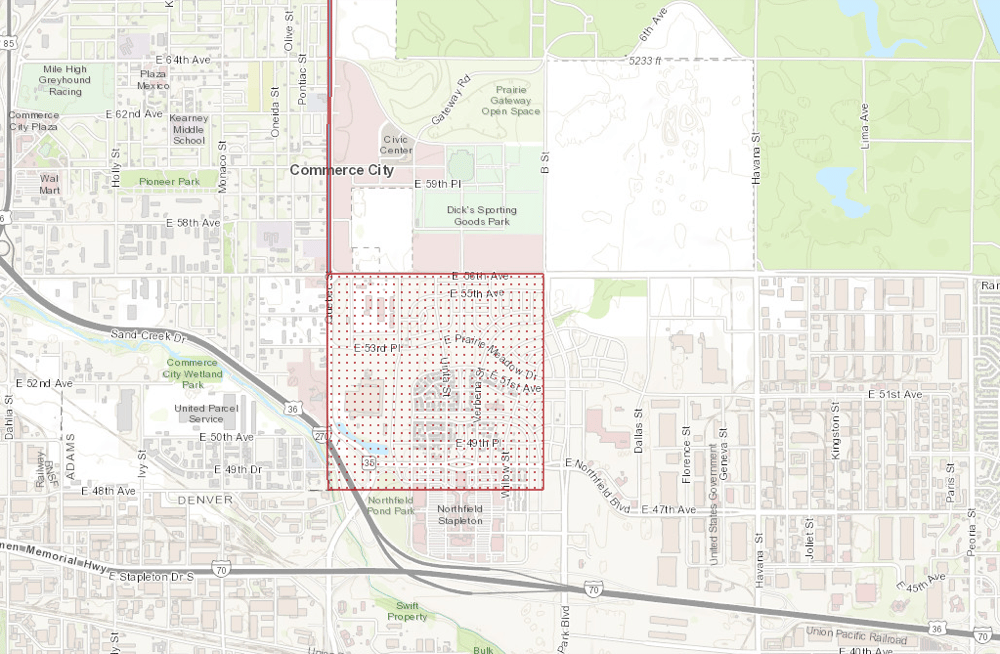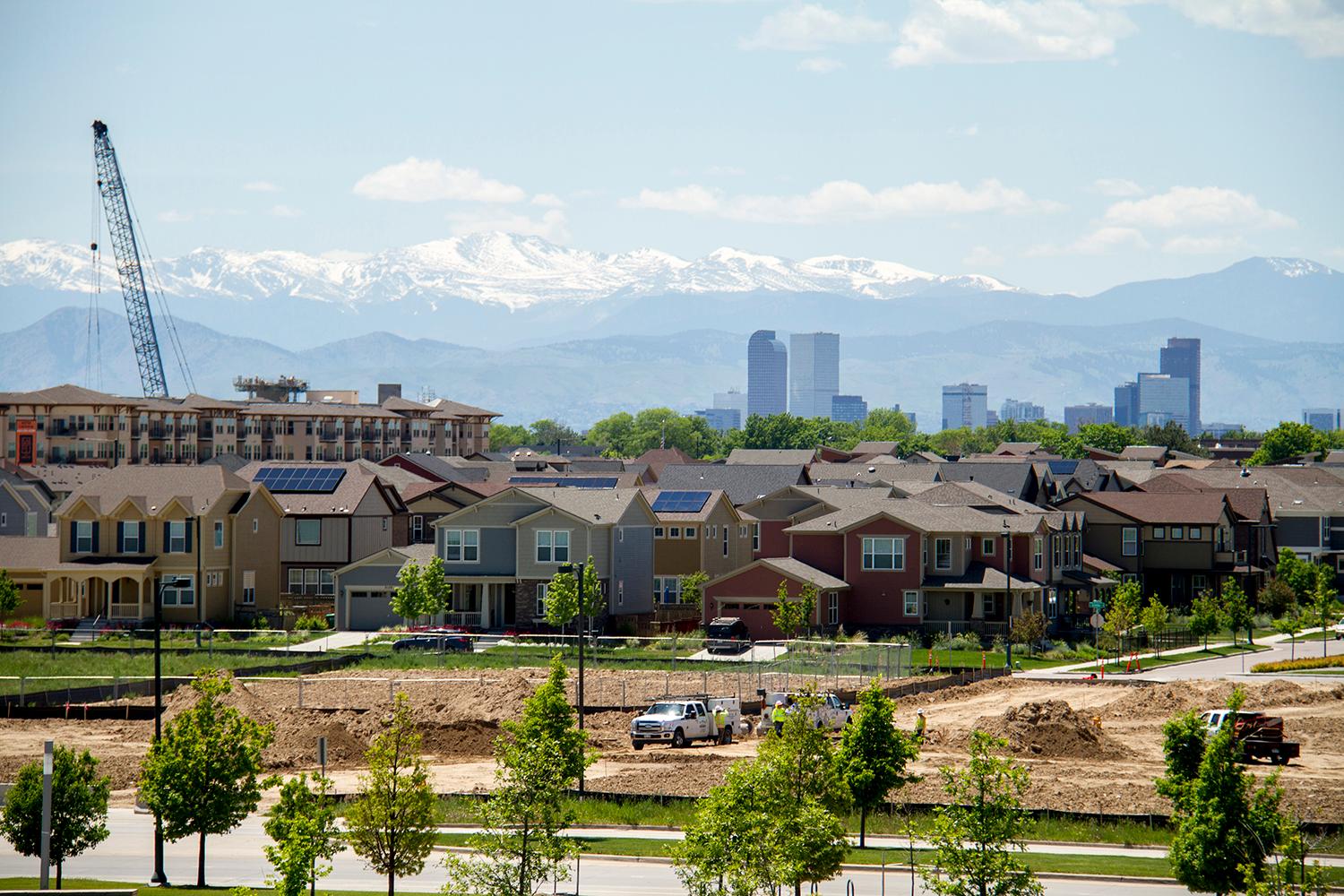Fracking was the talk of Stapleton for 30 anxious hours last week.
It started on Jan. 16 as social-media posts warned residents that oil drillers could be interested in their neighborhood.
And this wasn't some far-off issue: A geologist had proposed that the state of Colorado start a process that could eventually allow drilling companies to extract oil and minerals from the land beneath parts of Stapleton. The first meeting would be just two days later at 8 a.m.
The proposal was defeated. Nobody's going to be fracking Stapleton this year. But it's worth explaining why it was a possibility to begin with and why residents found out so late.
How it would have worked:
The Colorado State Land Board is a government authority that oversees millions of acres of land and natural resources across Colorado.
It has relatively little acreage in Denver -- including about 1,300 acres of "subsurface" rights to minerals and oil within city limits. Some of its underground rights are beneath Stapleton and adjoining land.

Sometimes, the land board will lease out those mineral rights, allowing third-party drillers to try to extract the resources. In fall 2017, a geologist requested that the board open up the Stapleton sub-surface acres for lease. The geologist believed it "could be lucrative," according to materials from the board.
The staff of the state land board agreed, and recommended that the roughly 500 subsurface acres be leased out.
"This particular tract is located on the periphery of the city and is being commercially and residentially developed, but there are still potential surface locations nearby that could be suitable for a horizontal drilling facility that would not impact the development of the surface," the land board staff wrote.
The board also considered leasing out a tract within Rocky Mountain Arsenal and another tract just west of Green Valley Ranch, all of which staff had recommended for approval, per records. The geologist who had proposed the leases said that the areas around the Arsenal could yield 170 million barrels of oil through horizontal drilling, according to the Front Porch newspaper. (Kudos to FP for some great coverage of this.)
Land board staff recommended that all the tracts be leased for development. Ultimately, the board rejected the idea under quickly mounting public pressure.
Board members rejected the idea for reasons including "insufficient information about the development plan" and concerns that local and state regulations would have limited attempts to extract resources, according to spokeswoman Kristin Kemp.
She stressed that even if a lease was granted, any drillers would have had to get through numerous levels of regulations in a "multi-step, multi-year process." And since the Stapleton tract didn't include "surface" rights, the drillers also would have had to find someone to lease them some useful land to set up the actual drilling equipment.
The tracts can't be nominated again for another year.
Why didn't residents know?
In November, the land board sent out a notice to the city of Denver.
The next step was for the land board commissioners to review the idea. A meeting was scheduled for Jan. 18 -- plenty of time to get organized. However, the message never reached residents, they said. Nor did it reach the office of Councilman Chris Herndon, who oversees the area, according to his aide.
The notice had gone to Francisco Alonzo, a Denver International Airport official, who was marked as the local government contact for the land. The board didn't hear back from Alonzo, who oversees the airport's real-estate portfolio. DIA declined to comment or make him available to comment on whether he had received the notice or not, deferring to Mayor Michael Hancock's office.
It's unclear how exactly word got out, but it spread mostly through social media.
Amanda Allshouse, president of Stapleton United Neighbors, said she only found out when a post surfaced on the SUN page the Tuesday before the land board's meeting. "I figured if that were a concern I would know about it from something other than social media," she said. "So, I actually deleted the post."
But she was quickly informed that it was real, and she was up until 1 a.m. that night researching and writing her own post, which rapidly spread across the community. By Thursday, the day of the meeting, the land board had received more than 450 emails about the proposal, according to Front Porch.
What's next?
Councilwoman At-large Debbie Ortega said that she wanted residents to have more time to mobilize in the future.
"I contacted the Mayor’s office to ask if we could have an adopted protocol on notification for applications that are outside of DIA property – where Denver’s only oil and gas wells currently exist – should we ever see another request to the CLB similar to this one," she wrote in an email to Denverite.
Mayor Michael Hancock's team took "immediate action," according to Ortega.
"The City and County of Denver shares concerns about the possible dangers associated with drilling nearby homes in Stapleton as well as other Denver neighborhoods," wrote spokeswoman Jenna Espinoza in an email to Denverite.
"Once the Mayor’s Office learned about the agenda and its potential implications, we immediately reached out to the Governor’s office as well as members of the State Legislature to voice our concerns and echo concerns already expressed by Denver Water.
The mayor's office now will designate the Denver City Attorney's Office as the point of contact for land board action, which should "ensure future (land board) notifications are properly elevated," according to spokeswoman Jenna Espinoza.
The office also will work with Denver City Council to make sure this information gets to the public.
For more information:
You can browse a helpful online map of land board property. However, you'll need to expand the "SLB Ownership" menu and enable "Mineral Estate" to see the Stapleton tract and other subsurface areas.











